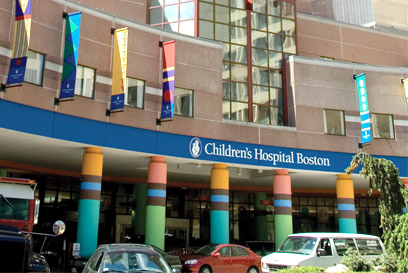
The comprehensive health of a community is impacted by a number of factors, and it therefore takes a united effort from a wide range of community organizations to most effectively address the issue. The Boston Children’s Hospital on Longwood Avenue in Boston’s Medical Area focuses on partnering with key community-based organizations to concentrate resources and fight the most pressing health issues facing the residents of Boston. To determine what those issues are, the hospital staff conducts a community survey every three years that assesses strengths and weaknesses of current programs and reviews data to find the most practical way to delegate their resources.
The center itself serves about 25,000 patients each year and performs a great deal of research on health-related issues, not just in Boston, but throughout the country. The Hospital’s research community is comprised of over 1,100 scientists and works in collaboration with the Harvard Medical School, located next door. Annually, the Hospital receives $225 million in funding to support their initiatives, including more federal funding than any other pediatric institution in the country.
In order to effectively reach the children and families most in need of quality healthcare, the Children’s Hospital partners with influential organizations, such as the Boston Public School System, the Boston Public Health Commission, and a number of neighborhood health centers. Together with these partner institutions, the Children’s Hospital provides a portfolio of programs to cover a number of health related issues.
The Children’s Hospital’s Community Asthma Initiative (CAI) is a good example of the lengths the organization takes to ensure maximum productivity of their funding. Using data collected from the Children’s Hospital, the staff found that the primarily Black and Latino communities surrounding the Hospital had asthma rates about four to five times those of the city of Boston. In 2004 CAI staff began serving the families in vulnerable areas, acting as a resource center and supporting the effected children. Emulating a program that had worked in the past, they worked with each family’s primary care provider to educate and effectively manage each patient’s asthma. The measured success of the program has prompted an expansion to include the entire city of Boston, and they are working with national healthcare organizations to offer similar programs in other U.S. cities.
For more information: http://www.childrenshospital.org/